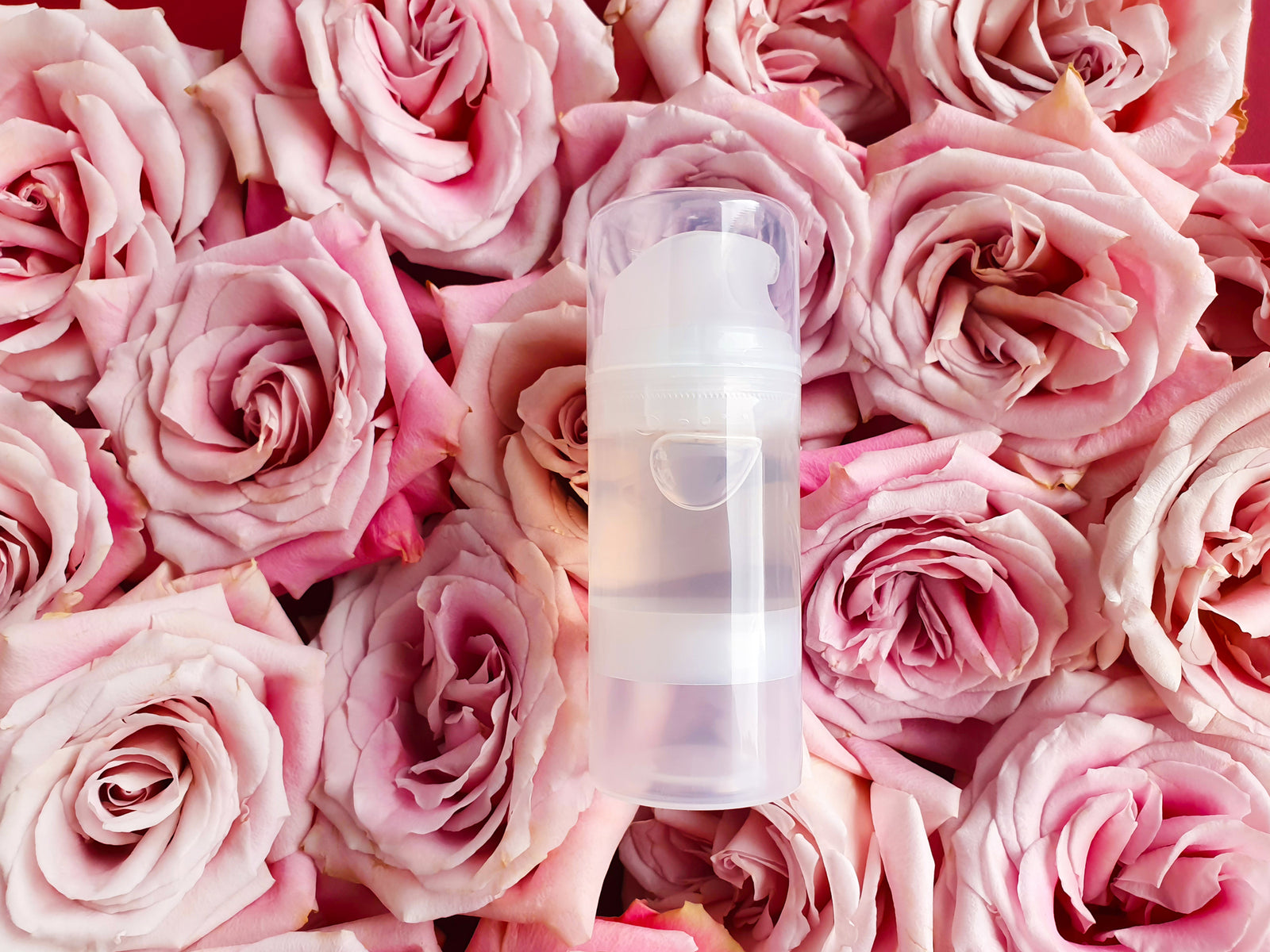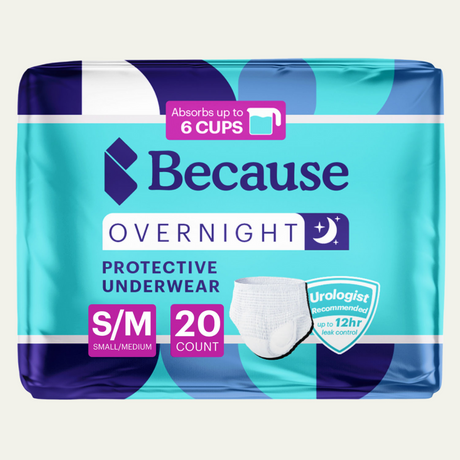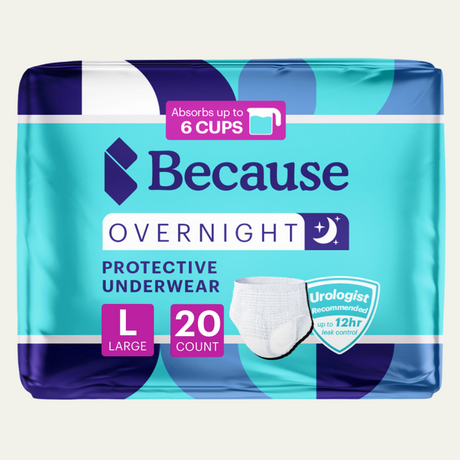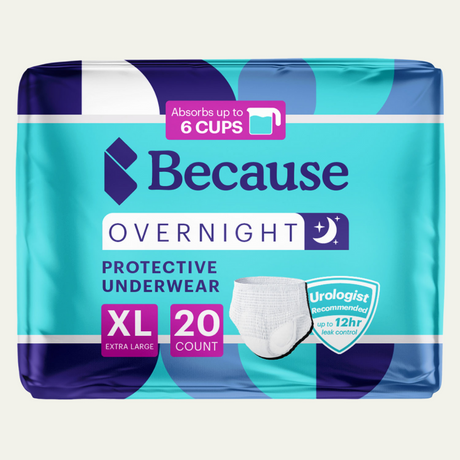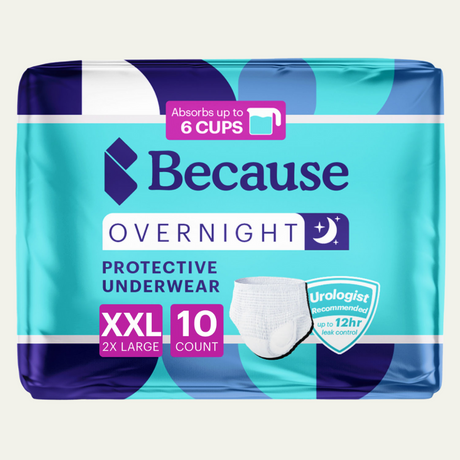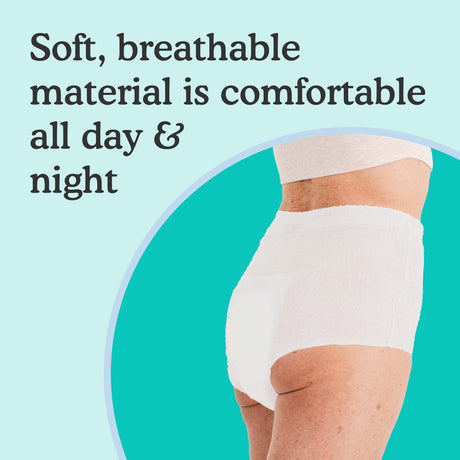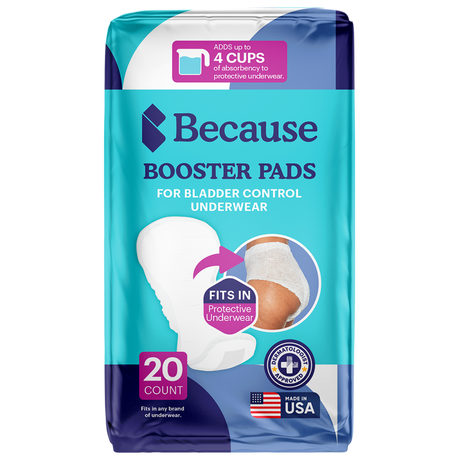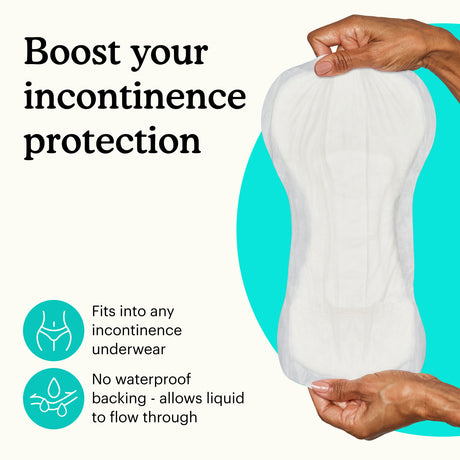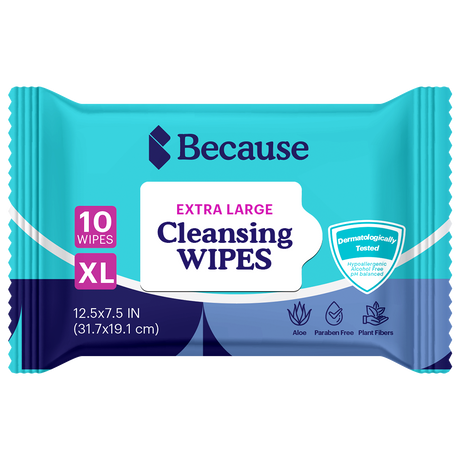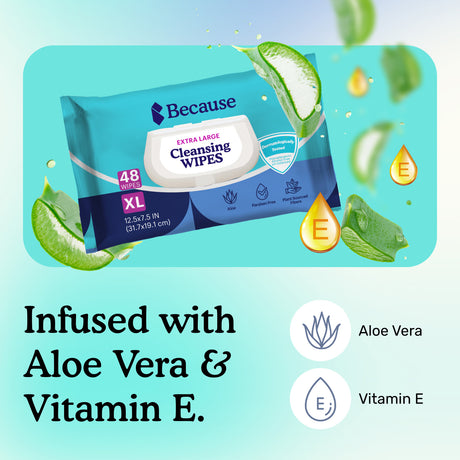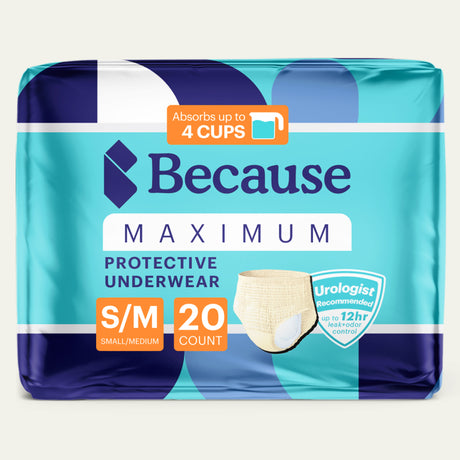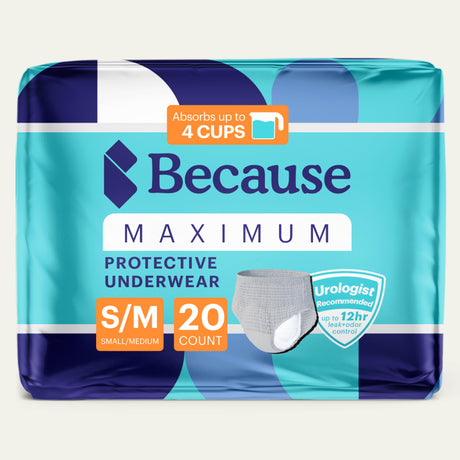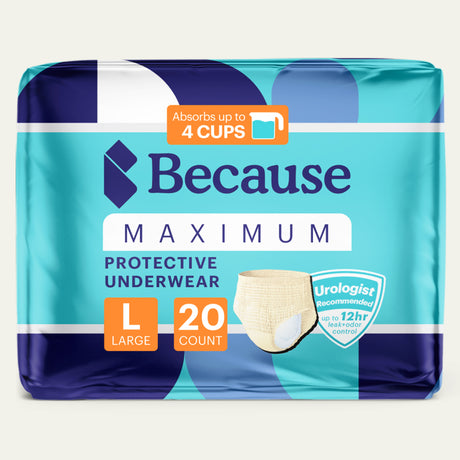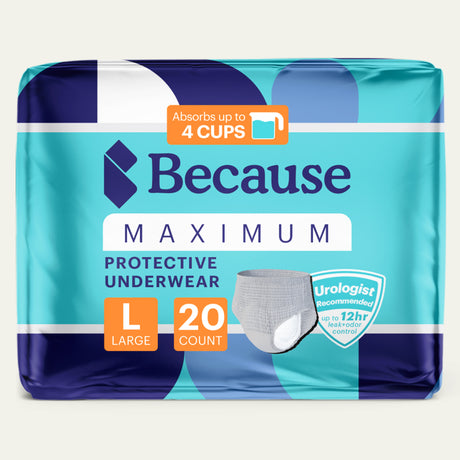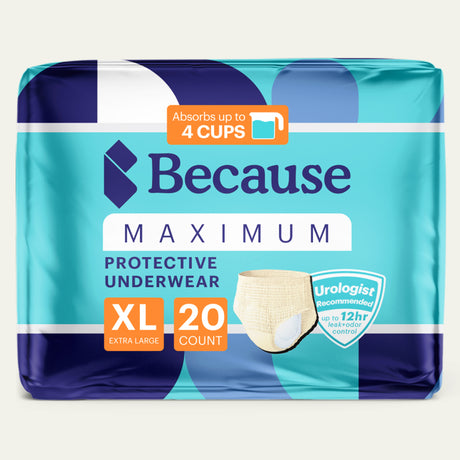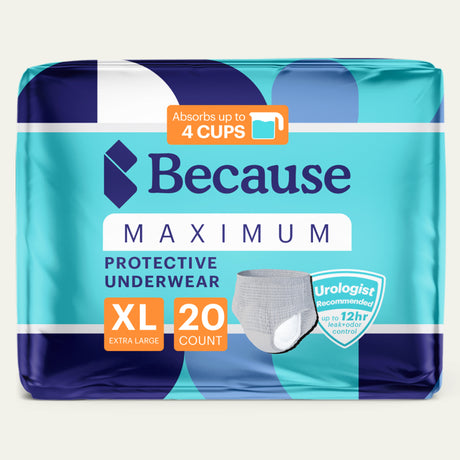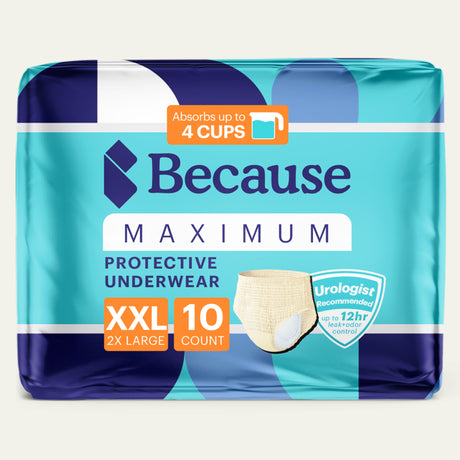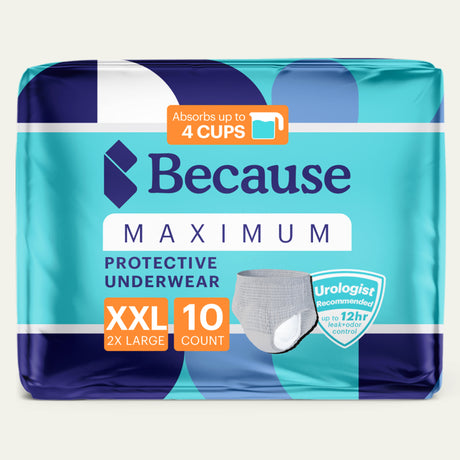Medically reviewed by Dr. Kerac Falk, MD, FACOG.
Around 50% of postmenopausal women deal with vaginal dryness that can cause discomfort and lead to pain during sex. Personal lubricants can reduce friction to address these symptoms, but many women wonder if these products increase the risk of UTIs. In this piece, we’ll explore the connection between vaginal lubricants and urinary tract infections to help you make an informed decision when choosing and using these products.
Are Lubricants Linked to UTIs?
It’s important to understand that lubricant isn’t the direct cause of a UTI. Bacteria are actually what lead to a urinary tract infection, and strains of E. coli bacteria are among the most common causes. If the bacteria travels from the anus to the genital area and enters the urethra, it can begin to reproduce. In response, the body may launch an immune response to fight off the harmful bacteria, and this leads to UTI symptoms like abdominal pain, frequent urination, pain upon urinating, and incontinence.
Sexual intercourse increases the risk for UTIs on its own. During sexual activity, bacteria can get forced into the urethra and give rise to an infection. Friction generated during sex may also cause irritation of the urethra which may make it easier for bacteria to become trapped in the urinary tract.
There are two main reasons why using lube during sexual activity may increase your chances of developing UTIs. First, ingredients in lube may cause allergic reactions or irritation that makes it easier for bacteria to become trapped in the lower urinary tract.
Second, lubricants may alter pH levels in the vagina and urinary tract. These areas are home to a vaginal microbiome of bacteria that includes good microorganisms that help fight off harmful bacteria. Changes to vaginal pH can kill off beneficial vaginal flora and reduce the checks on harmful bacterial growth, increasing the risk of infection in the urinary tract. Changes in pH levels can also put you at a higher risk for other vaginal conditions, like bacterial vaginosis and other types of infections like yeast infections.

Lubricant Ingredients That Can Contribute to UTIs
Each type of lube available on the market has its own set of ingredients, but products generally contain similar substances. Some of these ingredients are more associated with an increased UTI risk than others. Let’s explore some of the ingredients that can cause skin irritation and/or alter pH levels in the vagina.
Nonoxynol-9
Nonoxynol-9 is a spermicide—a medication that kills sperm. This medication is found in some lubricants that double as contraceptives. It is also used for spermicide-lubricated condom products and in spermicides used with other contraceptives like the diaphragm. Studies have found that the use of spermicides on condoms may increase the risk of urinary tract infections.
Flavors and Sugars
Some lubricants contain flavoring agents and sugars to make oral sex more pleasant for the performing partner. These ingredients can cause pH shifts. In addition, they provide food for bacteria and can turn the vaginal area into a breeding ground for infection-causing microbes.
Preservatives
Preservatives are ingredients that help extend the shelf life of lubricants. Like flavors and sugars, they can cause changes in pH that negatively impact urinary and vaginal health. Some preservatives may pose other risks as well.
Other preservatives may also make women more vulnerable to infections. Glycerols like glycerine, propylene glycol, and glycerol have been shown to raise the risk for bacterial vaginosis and to serve as a food source for yeast. Another preservative, chlorhexidine, can act as an irritant and impact vaginal health by inhibiting beneficial bacteria.
Other Chemicals
Some lubricants contain other ingredients that may trigger irritation or cause shifts in pH levels, which can kill off good bacteria. These include:
- Artificial colors and dyes
- Buffering solutions
- Chemicals that change viscosity
- Fragrances
- Numbing agents
- Warming and cooling agents
Choosing the Best Lube if You Are UTI Prone
If you’re prone to UTIs, it’s important to carefully weigh your lubricant options and pay attention to ingredients. The following are some things to consider as you select a lubricant.
Water-Based vs. Silicone-Based vs. Oil-Based Lube
There are three main types of lubricants available for anal and vaginal intercourse. Let’s take a look at each type.
Water-Based Lubricant
The key ingredient in water-based lubricants is water, which gives the products a lightweight feel and silky consistency. Water-based lube is easy to wipe off. However, it can quickly become absorbed by the skin and may need to be reapplied more frequently than other types of lube.
Water-based products can be safely used with latex condoms as well as with most types of sex toys, and they may be less likely to cause genital irritation than those that contain silicone.
Silicone-Based Lubricant
In the formulas of silicone-based lubricants, silicone takes the place of water. This makes the lubricant thicker and slipperier. Silicone lube typically lasts for longer, cutting down on the need for frequent reapplication but making it more difficult to wash off your skin. Due to its properties, silicone lubricant is often recommended for anal sex in addition to vaginal intercourse.
You can safely combine silicone lubricants with lubricated and unlubricated condoms made out of latex and with sex toys made of plastic or vinyl. However, you shouldn’t use it with silicone sex toys.
Oil-Based Lubricant
Instead of water or silicone, oil-based lubricants contain petroleum jelly, mineral oil, or a natural oil like virgin coconut oil. Like silicone lubricants, these products can outlast water-based lube but are more difficult to clean off.
The biggest downside to oil-based lube is that it can break down condoms. As a result, it can increase the risk of unplanned pregnancy and the transmission of sexually transmitted infections (STIs).
pH-Balanced Lubricants
The term pH-balanced means that a product is formulated to complement the body’s natural pH. Only water-based lubricants have pH levels of their own. Generally, experts recommend using lubricants with pH levels above 3 to support urinary and sexual health.
Natural Lubricants
Natural lubricants are products that contain fewer synthetic ingredients than conventional lubes. In these formulas, natural ingredients like plant oils and essential oils are substituted for chemicals. Men and women who are sensitive to specific chemicals like paraben preservatives or artificial fragrances may wish to choose these natural lubricants.
Explore Options With Your Doctor
If you’re prone to urinary tract infections, the best way to choose a lubricant is to consult your health care provider. They can help you compare different types of lubes and recommend the right one for your needs.

Tips for Preventing UTIs
Using the best choice of lubricant for your needs is just one way to reduce your risk for urinary tract infections. Keep reading to learn about some other things that you can do to help prevent UTIs.
Try Vaginal Estrogen
Prescription estrogen creams and other topical products can be beneficial for postmenopausal women dealing with vaginal dryness. By raising estrogen levels, they can treat vaginal dryness and reduce the need for lubricants during intercourse. In addition, they may help prevent UTIs. Talk to your healthcare provider about whether vaginal estrogen is right for you.
Wear Cotton Underwear
Underwear made of synthetic fibers like polyester can trap moisture in the genital area, encouraging bacteria growth. Because it’s a breathable fabric, cotton underwear promotes drier skin and may reduce the risk of UTI.
Modify Your Diet
Some foods and drinks can irritate the bladder and cause discomfort. While diet modification may not decrease your risk of UTI, it can reduce the feeling of irritation, urgency, or burning. To reduce those feelings, try avoiding the following foods and drinks:
- Acidic foods like vinegar, tomato and tomato products, and citrus fruits
- Alcoholic beverages, like beer, wine, and liquor
- Caffeinated foods and drinks like coffee, tea, energy drinks, and chocolate
- Fatty foods like fried foods and fast food
- Spicy foods like chili peppers and curries
Reducing your intake of these foods may be beneficial.
Stay Hydrated
Drinking enough fluids daily is one of the best habits for supporting urinary health. Remaining hydrated can help support urine production to flush out your urinary tract and reduce the concentration of your pee and lower the likelihood of bladder irritation. Your healthcare provider can recommend the right amount of fluids to meet your daily needs.
Practice Good Hygiene
Prioritizing good hygiene is one of the best ways to protect yourself from UTIs. To do so, follow these tips:
- Wash your hands before and after you go to the bathroom and participate in sexual activity
- Avoid touching the tip of the lubricant tube or bottle to your genitals
- Clean sex toys after every use
- Wipe from front to back after going to the bathroom
- Avoid douching, as it can upset vaginal pH
- Change used incontinence underwear and pads promptly
Discuss Urinary Tract Health With Your Healthcare Provider
If you’re experiencing frequent UTIs, discuss the issue with your doctor. They can partner with you to develop a treatment plan that can address your individual risk factors and help you promote urinary system health going forward.
You should also let your healthcare provider know whenever you experience UTI symptoms, so they can order tests on a sample of your urine, diagnose the infection, and prescribe antibiotics and other medications to treat the infection and ease your discomfort.
Are you looking to improve your personal care routine? Shop Because personal care products to find feminine washes, cleansing wipes, cleansing sprays, and more.
About the Expert:
Dr. Falk is a fellowship-trained urogynecology subspecialist, double board-certified in both Obstetrics and Gynecology, as well as Female Pelvic Medicine and Reconstructive Surgery. He has expertise in the treatment of female pelvic floor disorders, which encompass many common but infrequently-discussed conditions which significantly impact women’s quality of life. These include complex disorders such as urinary and bowel incontinence, pelvic organ prolapse, childbirth injury, genital fistulas, recurrent urinary tract infection, and bladder pain.
Sources:
Harvard Health Publishing. (2021, April 27). Don't Ignore Vaginal Dryness and Pain. Harvard Health Publishing. https://www.health.harvard.edu/womens-health/dont-ignore-vaginal-dryness-and-pain
JAMA Network. (1998, February 9). Use of Spermicide-Coated Condoms and Other Risk Factors for Urinary Tract Infection Caused by Staphylococcus saprophyticus. JAMA Network (JAMA Internal Medicine). https://jamanetwork.com/journals/jamainternalmedicine/fullarticle/191301
